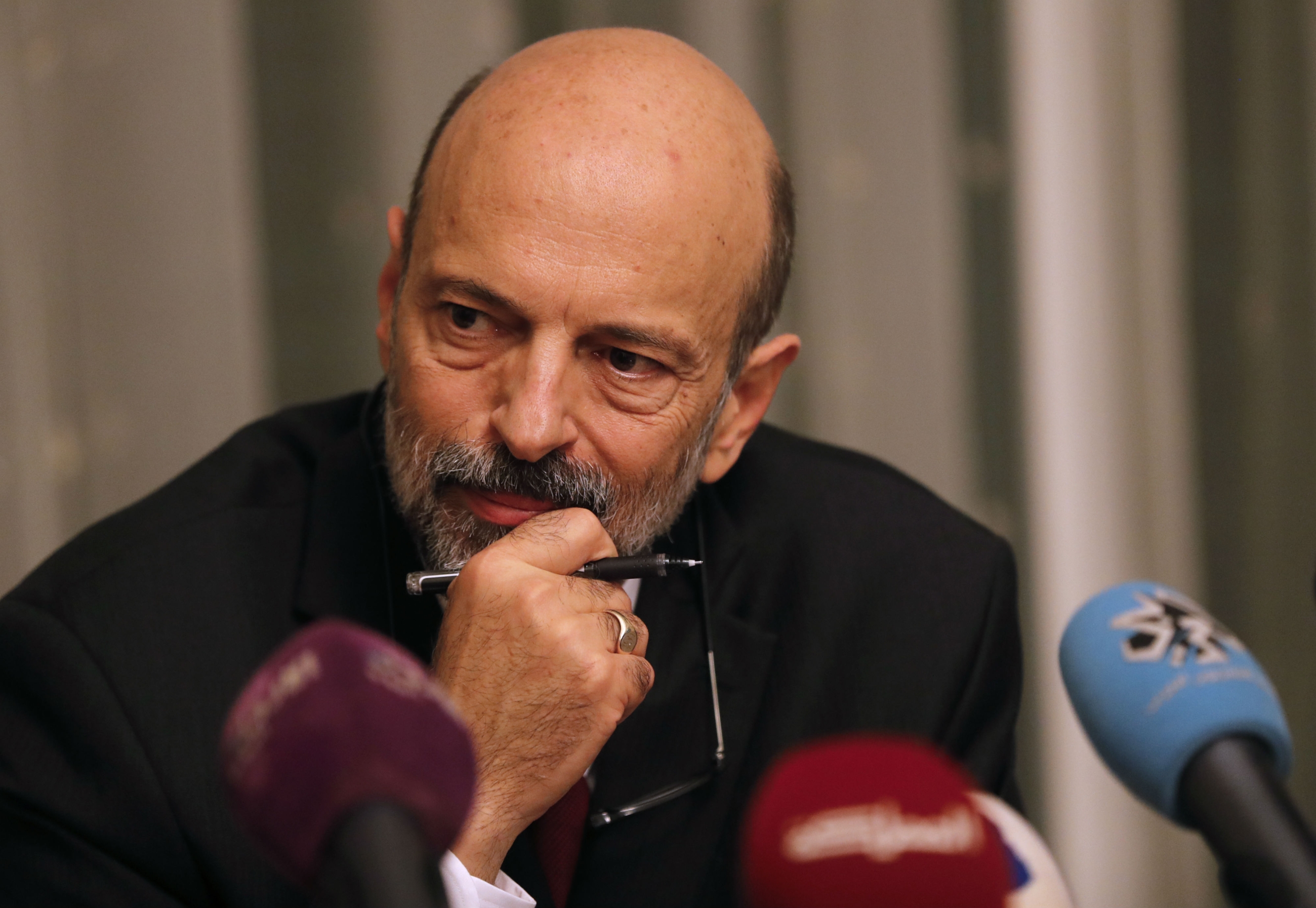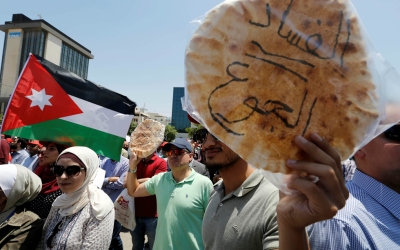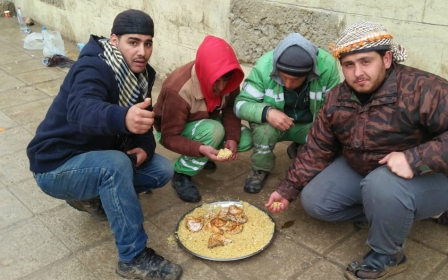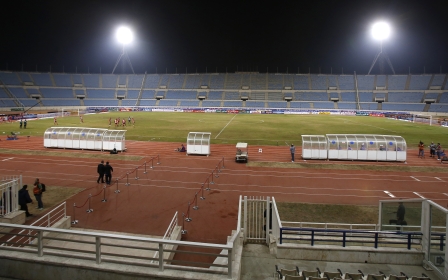Jordan's prime minister asks cabinet to resign with Ramadan protests on the horizon

Jordan’s Prime Minister Omar al-Razzaz on Wednesday asked his ministers to collectively hand in their resignations, with a major government shake-up planned in the upcoming days.
King Abdullah II appointed Razzaz in June 2018 following wide anti-revenue tax protests in the cash-strapped country. Razzaz has shuffled his cabinet twice this term, his third.
New MEE newsletter: Jerusalem Dispatch
Sign up to get the latest insights and analysis on Israel-Palestine, alongside Turkey Unpacked and other MEE newsletters
The kingdom had seen regular demonstrations since last May, when a massive gathering of protesters first rallied against the government's economic policies and rampant corruption, resulting in the resignation of the prime minister, Hani Mulki, early the next month.
The prime minister’s office said in a statement that Razzaz's request comes “as the next stage requires more effort to overcome challenges and achieve the government’s plans”.
In October, Razzaz merged six ministries and asked ten ministers to resign.
In January, he also asked four ministers, including the education and tourism minister, to resign after floods hit a school bus and killed 21 students during a trip to the Dead Sea in December 2018.
Political expertise
Mamdouh al-Abadi, former Deputy Prime Minister of Jordan, told Middle East Eye that the Jordanian cabinet needs to be injected with ministers with political expertise.
"There is a large number of technocratic ministers, which the current government is, and it has focused on the economic matters. This is not enough," he said.
'We need government leaders to face the political repercussions of the deal of the century and stand as a united front'
- Mamdouh al-Abadi, former deputy prime minister
According to Abadi, Jordan needs ministers who are politicians with popular bases and are willing to address people in the streets.
"We also need government leaders to face the political repercussions of the deal of the century and stand as a united front," Abadi said, referring to US President Donald Trump's Israel-Palestine peace plan slated to be released after Ramadan.
He added that ministers with political expertise would be able to communicate thoroughly with parties, NGOs and the people.
Jordan is battling a soaring unemployment rate that hit 18.6 percent last year, rising inflation as a result of taxes on essential commodities and a national debt which stood at $39bn in 2018.
Ramadan protests
Hassan Barari, a political analyst, told MEE that Razzaz's government is expected to witness protests against austerity and tax rises during the month of Ramadan, which started on 6 May.
Last year, Jordanians protested in thousands in the capital Amman after they broke their fast at sunset.
"They need a government to receive popular support so it is able to absorb any protests that might come in Ramadan. So, that's why Razzaz got rid of some of his ministers," Barari said.
He added that the ministerial reshuffle has no connection to the "deal of the century", and the latest Israeli leaks about it.
"Jordan is not a big foreign policy player, and the change in government is internal politics. Regarding Trump's deal, the royal court and the king have mobilised Jordanians with warnings about it," Barari said.
This article is available in French on Middle East Eye French edition.
Middle East Eye delivers independent and unrivalled coverage and analysis of the Middle East, North Africa and beyond. To learn more about republishing this content and the associated fees, please fill out this form. More about MEE can be found here.





